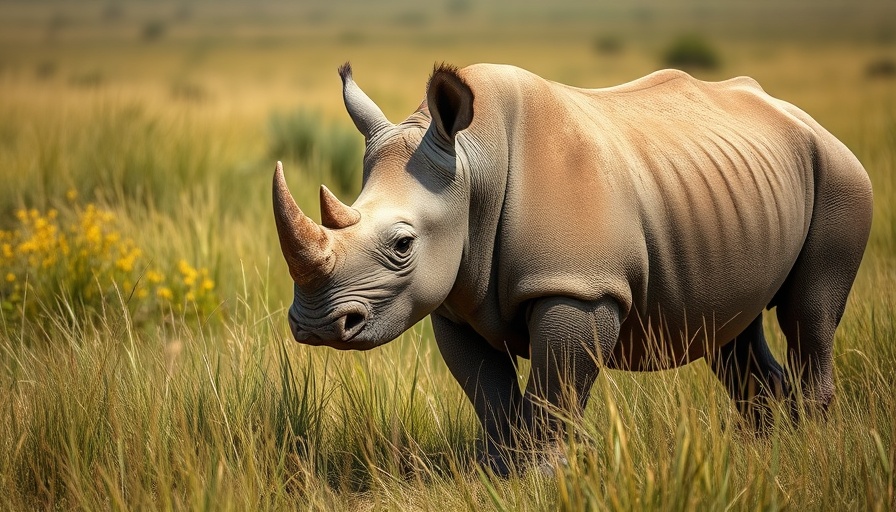
Understanding South Africa's Wildlife Crisis
Rhino poaching is not merely a crisis for wildlife; it is a wound to the very essence of South Africa. Recognized globally as one of the 17 mega-diverse countries, South Africa holds a unique place in the heart of biodiversity. With a rich tapestry of flora and fauna that instances tourism and national pride, the poaching crisis threatens to unravel decades of conservation efforts and economic stability.
The Legacy of Conservation
At the heart of South Africa’s conservation story stands the remarkable resurgence of the southern white rhino, a tale marked by dedication and passion. Pioneers like Dr. Ian Player, along with dedicated partners, dedicated their lives to the sustainable future of this species. This commitment birthed a narrative of hope—one showcasing that tools for conservation can yield impressive results. As more initiatives arise, from conserving the Cape Mountain zebra to protecting marine wildlife, now is the time to reinvigorate this ethos against the encroachment of greed.
The Economic Impact of Rhino Poaching
Equally alarming is the economic fallout from dwindling rhino populations. Eco-tourism helps to prop up local economies, generating billions in revenue and sustaining countless jobs across the nation. These gains are directly tied to healthy wildlife populations; tourists don’t travel thousands of miles to witness mere savannahs. They come seeking wildlife, the iconic Big Five, as they resonate with the beauty and spirit of Africa. If rhino poaching continues unchecked, our landscapes will lose these treasures, leaving little to draw visitors eager for wildlife experiences.
A Call for Global Responsibility
The reputational damage from rampant poaching could isolate South Africa in the international community, threatening long-standing global partnerships and the vital support they bring. Through a lens of conservation, the world has recognized South Africa as a beacon of biodiversity. But if we continue on this path of destruction, we stand to lose that status, underscoring the urgency needed to combat wildlife crime.
Cultural Significance: More Than Just Animals
Beyond their ecological and economic roles, rhinos and other wildlife carry deep cultural significance. They are more than mere animals; they represent our identity and history. In numerous African traditions, animals act as spiritual guardians and symbols of ancestral lineage. The disappearance of these creatures isn’t just a loss of wildlife; it symbolizes the severing of connections between us and our heritage. As South Africans and as global stewards of nature, we bear the responsibility to protect these species for current and future generations.
How You Can Help
Whether through advocacy, supporting conservation programs, or educating others about the plight of rhinos, each of us can contribute to safeguarding these majestic creatures. Join a local initiative tackling wildlife conservation, participate in educational programs, or even consider visiting conservation wildlife parks to experience their importance firsthand. Together, we can forge a future that honors our wildlife legacy.
 Add Row
Add Row  Add
Add 




Write A Comment